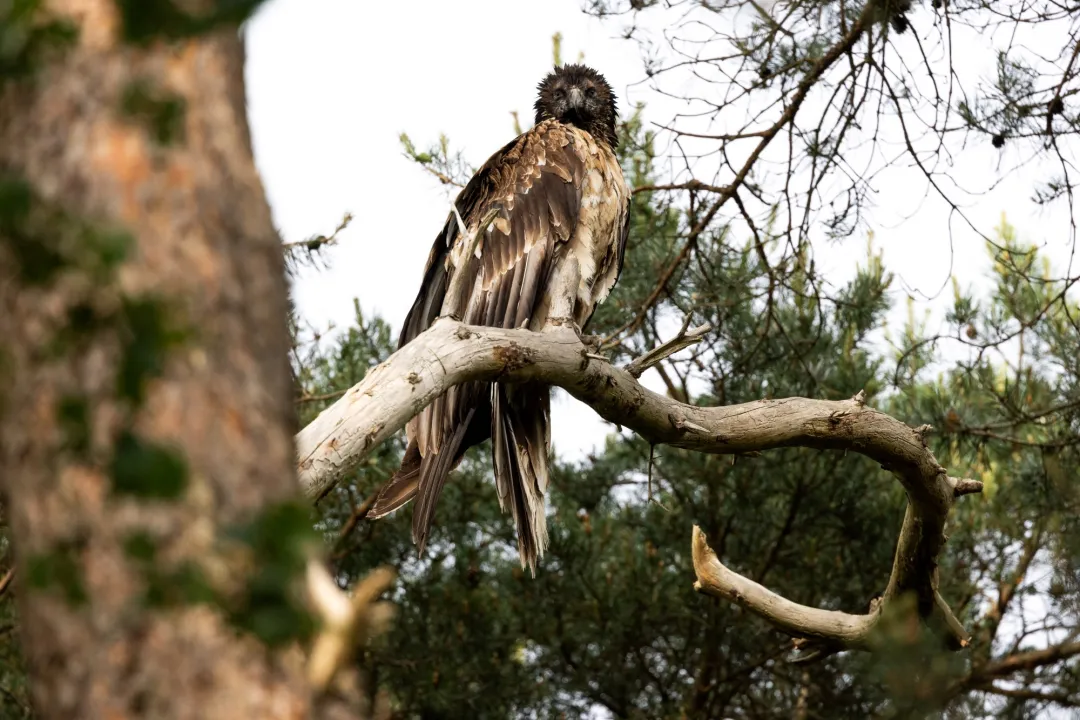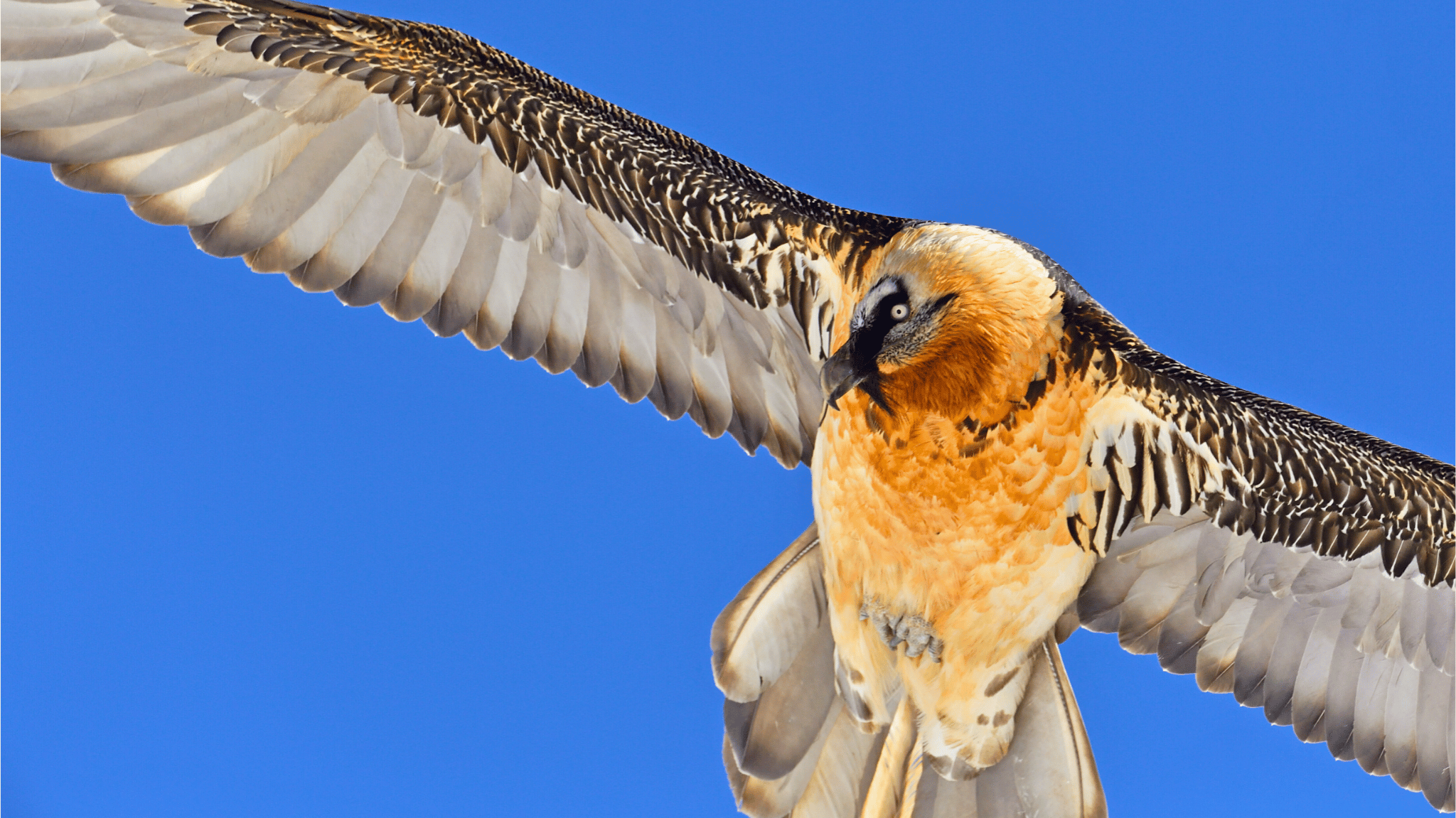
Lead ammunition used in hunting activities presents a risk to vultures, other wildlife and people. The fragmentation of lead ammunition and the dissolution of fragments can contaminate many important elements of ecosystems, such as soil and water, and pose a real public health problem, particularly for people who consume game meat. Vultures are at the top of the food chain and are particularly vulnerable to the process of bioaccumulation. If vultures eat carrion that contains lead ammunition, they may experience lead poisoning, with chronic or even lethal consequences. The Vulture Conservation Foundation (VCF) has been involved in various initiatives aiming to minimise this threat and will continue to do so.
Promoting non-lead ammunition at CMSCOP13
The VCF was present in the biggest ever Conference of the Parties of the CMS (held in Gandhinagar, India, between the 15 and the 22 February), which hosted over 2,500 participants. At the CMS COP13, a postcard was created by the Wildfowl & Wetlands Trust (WWT) to advocate the urgent need to transition away from lead ammunition, which was also supported by the VCF.

Furthermore, at the conference, a new task force on lead poisoning has been created, and will hopefully help progress and push forward the gradual elimination of lead from hunting ammunition. This will certainly also contribute to the ongoing reviews in Europe led by the European Union.
Protecting vultures from lead poisoning in Europe
In recognition of the impacts of lead poisoning or contamination, we here at the Vulture Conservation Foundation are committed to working towards a gradual and consensual elimination of lead ammunition from vulture habitats. We are working with other conservation organisations, hunters and governments towards passing laws and regulations to minimise this threat.
Lead poisoning was recognised as an important threat to vultures in the Vulture Multi-species Action Plan, a global plan for the conservation of 15 species of vultures, co-developed by the VCF, and endorsed by the Convention for Migratory Species, which called for the phasing out of its use.
Across Europe, we have been involved in several initiatives to reduce the use of lead ammunition and promote lead-free hunting practices.
Our LIFE RE-Vultures project is currently working to reduce the use of lead ammunition in some areas of the Rhodopes Mountains in Bulgaria by promoting lead-free hunting practices.
In the Italian Alps, the use of lead ammunition has been banned in the Stelvio National Park and Sondrio Province. Similarly, lead ammunition is banned from large parts of the Swiss Alps, including the Swiss National Park.
At Hohe Tauern National Park in Austria, in the Pyrenees, and as part of our GypConnect and GypHelp LIFE conservation projects, at the Cévennes National Park in the French Massif Central, and in Haute-Savoie, pilot projects where hunters tried non-lead ammunition have been carried out, some of them also partly funded by MAVA Foundation. Hundreds of hunters participated in these trials, using non-lead alternatives provided by the project, and used them in their normal hunting practices, while evaluating the ballistic performance of the non-lead alternatives. These pilot projects also included a lot of calibration tests in shooting ranges, and some seminars about the issue – here you can read about some of results obtained.
In Croatia and Portugal, similar pilot tests are being conducted as we write. In Croatia, a meeting took place at Cres Island, which is the home of last breeding population of Griffon Vultures in the country. The meeting brought the first lead-free rifle ammunition to local hunters, providing almost 1,000 rifle bullets to two local hunting associations. The VCF supported the event within the framework of the Balkan Anti-Poisoning Project, testing a lead-free ammunition initiative.
The Generalitat Valenciana has also banned the use of lead ammunition in two areas in Maestrazgo, a very positive move associated with the new bearded vulture reintroduction project there.
The VCF has also organised seminars and symposia focussing on this issue, trying to bring together hunters, conservation organisations, protected area managers, and ballistic experts to discuss and find solutions to this problem. One such seminar, due to happen next week in France, has now been postponed due to the Covid-19 pandemic.
There is growing momentum to restrict the use of lead ammunition for hunting across Europe, and the VCF has recently contributed to recent calls for evidence from the European Chemical Agency (ECHA) of the European Union. The submitted documents can be downloaded below.
Public consultation – lead terrestrial R
Adobe Acrobat Document 830.7 KB
VCF’s goals for the future

The VCF is committed to tackling this threat and has recently submitted a LIFE proposal with eight other partners to work on this matter across five countries in the Alps, focussed on the Bearded Vulture. Due to their particular digestive system, Bearded Vultures are particularly exposed to the risks of heavy lead poisoning. These risks, which are increasingly well documented, are an important limiting parameter in the conservation of the species.
Alternatives to lead ammunition do exist and are easy to use. We are working with all stakeholders to discuss technical issues and arrive at a win-win solution that benefits all – hunters, vultures and the wider environment.
Download a list with the relevant references
List of references on lead and avian sca
Adobe Acrobat Document 340.2 KB











